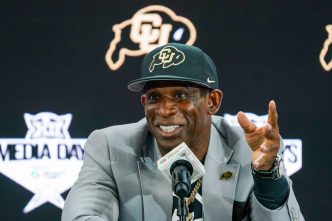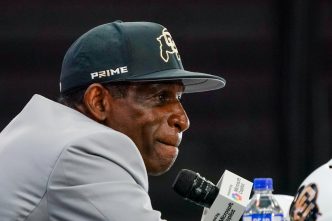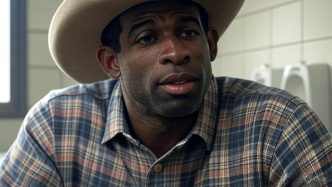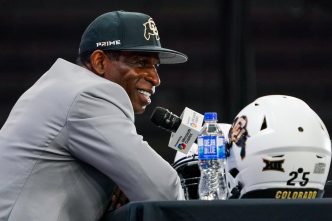As the Michigan Wolverines and NCAA Enforcement staff gear up for their pivotal showdown in Indianapolis, things will kick off not with a whistle but with a breakfast spread. Yes, before diving into the intricate web of NCAA infractions, the folks involved will break bread—perhaps a symbolic pause before diving into a tangled narrative that has captured the college football world.
At the heart of this high-stakes, legal tussle is the unique case of Connor Stalions—a Michigan staffer involved in a scandal that has pushed the boundaries of traditional college football infractions. His actions have spotlighted not just individual missteps, but also the broader processes and bureaucracies of the NCAA.
This isn’t just another case, folks. It’s shaping up to be one of those chapters—perhaps the final one—where the NCAA acts as both judge and jury over collegiate misconduct. The winds of change have been blowing through the NCAA landscape, with new policies reshaping everything from enforcement to player compensation. Josephine Potuto, a seasoned expert in NCAA matters, pointedly notes that while some rules will remain on the books, the rulebook itself is being rewritten—a sign of the evolving times.
At the core of this hearing are the 11 alleged NCAA violations against Michigan, six of which are categorized as severe Level 1 offenses. Among the hot topics on the agenda: What will happen to Wolverines’ head coach Sherrone Moore, accused of major violations in the wake of Stalions’ antics? The consequences could range from recruiting restrictions to a potentially unprecedented postseason ban, although the latter has fallen out of vogue due to its retroactive punishment of innocent players.
In unraveling this saga, one can’t overlook the intriguing plot lines. It was back in the fall of 2023 when Stalions, fueled by his die-hard love for the Wolverines, went rogue. The discovery that he spearheaded an elaborate scheme to record opponents’ play signals set off shockwaves, accusing him of orchestrating a spy network that violated NCAA rules on scouting.
Imagine this: Stalions even turned up on the sidelines of a rival game disguised—not exactly your textbook scouting mission. An investigation ensued that quickly entangled others, including former Michigan colleague Jake Kostner and Jim McElwain, who has since retired. For Moore, implications from deleted text messages hang like a cloud, as investigators argue over the significance and what they reveal about his involvement.
What’s fascinating is how the University of Michigan has approached this kerfuffle. They’ve pushed back, sometimes publicly, garnering both criticism and attention. The NCAA’s skeptical approach to accepting Michigan’s self-imposed penalties on Harbaugh, followed by their decision to suspend Moore in non-typical intervals, has only turned the spotlight brighter on the season.
As the parties convene in a conference room that tends more towards legality than splendor, they’re joined not only by legal teams but under the ever-watchful eye of the NCAA’s methodical yet sometimes criticized enforcement process. The stakes are high—higher still when considering Michigan’s public posturing and Harbaugh’s departure to the NFL.
After opening statements, the real back-and-forth begins, with each side striving to shape the narrative around the allegations. It’s a collaborative tango between the school and enforcement staff, interracial’s jousting over interpretations, with each side looking to protect or challenge reputations.
If there’s any benefit to be gleaned from this saga, it’s in the way it underscores the deeply entrenched and often contentious utilization of power in collegiate athletics. The cumbersome NCAA process may soon evolve as House v. NCAA changes the game, potentially marking the last act for the NCAA as college sports knows it.
What will the verdict be on this Michigan saga? Only time will tell, as the appeals process narrows and the institution looks toward Deloitte’s Collegiate Sports Commission for future adjudications. This case is a beacon on the horizon showing that even with power shifts and rulebook reforms, collegiate athletics will always thrive on the edge of change. So, fans, fasten your seat belts; the Michigan vs. NCAA saga awaits its crescendo.







